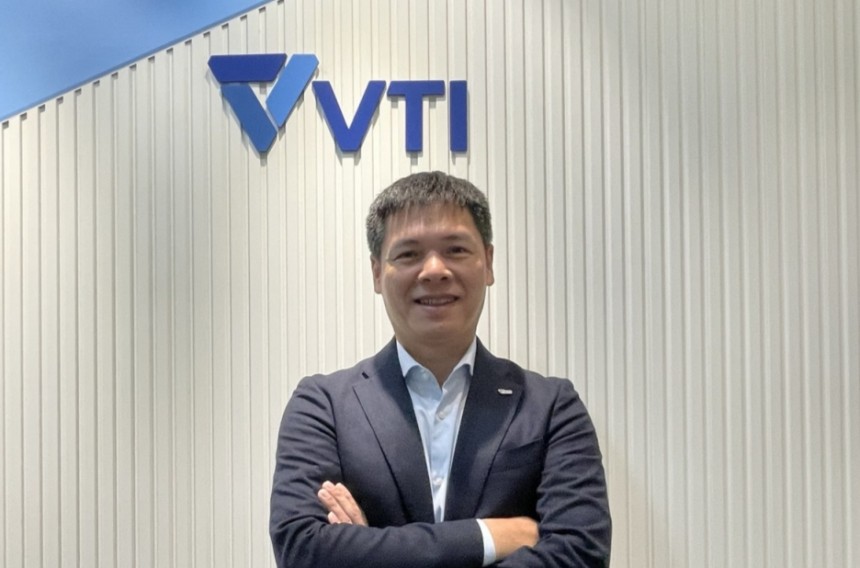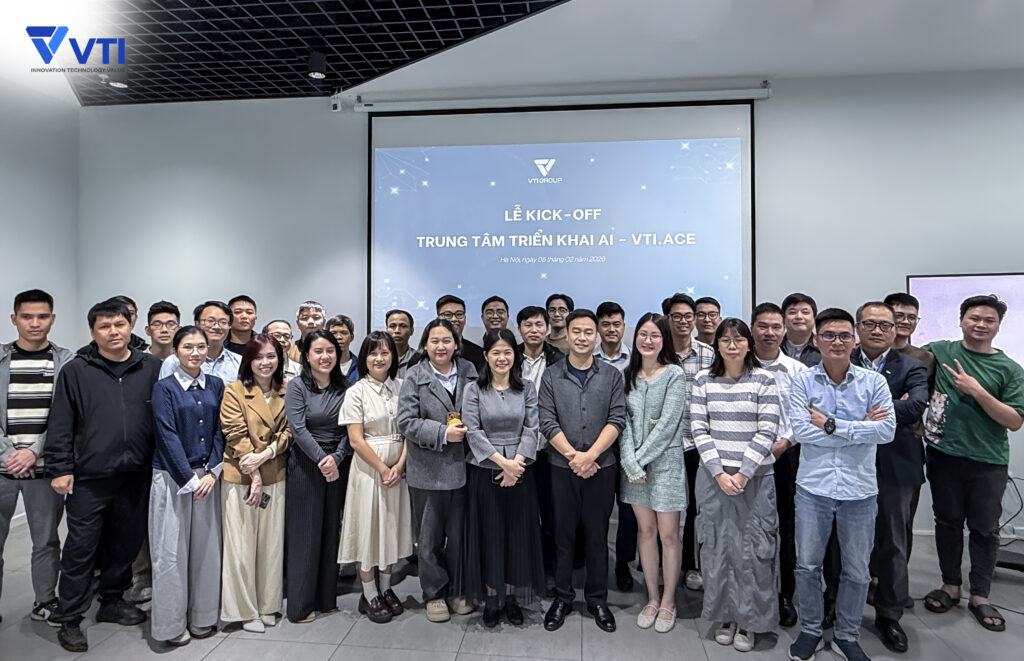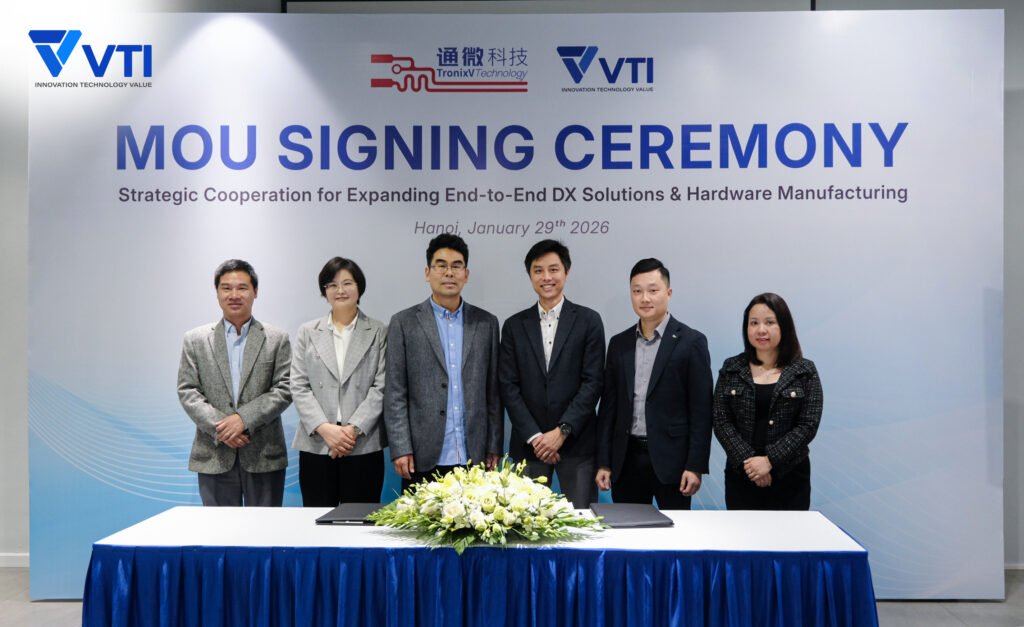This month, during his visit to South Korea, Mr. Tran Xuan Khoi, CEO and Chairman of VTI, met with Unicorn Factory—Money Today’s media outlet focused on startups—at VTI’s Seoul Myeongdong office. In the interview, he shared insights on South Korea’s demand for IT talent, the promising growth of IT development outsourcing, and VTI’s capabilities and commitment to meeting the market’s rising needs.
Interview details are as follows (Source: Money Today):
“If there’s a shortage of IT talent in South Korea, Vietnamese companies can be the solution.”
The mismatch between talent and demand in South Korea’s information technology (IT) industry is not a new issue. According to a joint survey conducted last year by the Ministry of SMEs and Startups and the Ministry of Culture, Sports and Tourism, 75.4% of small and medium-sized enterprises (SMEs) said it is “difficult” to recruit and retain software (SW) specialists. Only 2.1% found it “easy”.
Amid this, overseas software development companies have emerged as alternatives. IT outsourcing companies from Southeast Asia, including Vietnam, have been actively entering the Korean market. One such company is VTI, which established its Korean branch last year.
Tran Xuan Khoi, Chairman of VTI, started his career as a developer and later became an executive at FPT, Vietnam’s largest global IT outsourcing service provider, before founding VTI in 2017. Since then, he has expanded VTI’s reach to advanced IT markets like South Korea and Singapore. Despite still being a young company, VTI has grown into a business with over 1,200 employees across four countries, the majority of whom are young developers.
During his visit to South Korea this month, Chairman Tran met with Unicorn Factory, Money Today’s startup-specialized media, at VTI’s Seoul Myeongdong office. He shared,
“The demand for technology solutions is strong in South Korea, and the need for IT outsourcing will continue to grow. We are committed to continuously strengthening our capabilities to meet the increasing demand in the Korean market.”
IT Development Outsourcing Expected to Grow
Whether or not they are specialized IT companies, businesses now rely on software for app development, digitalizing customer services, etc. For companies that find it difficult to maintain an in-house development team, outsourcing becomes a necessity. As demand for outsourced development increases, “low-code” development is gaining traction.
As its name suggests, low-code development involves creating digital solutions for customer experience and service sectors with minimal coding. This approach reduces the need for high-level technical resources, allowing businesses to save costs. Chairman Tran is targeting the demand for low-code development among South Korean companies, leading to an increasing number of partnerships with Vietnamese companies like VTI from Korean corporations, institutions, and universities. He shared,
“Since officially launching our Korean branch in February 2023, we have collaborated with around 20 customers in South Korea, including major corporations. The Korean market is highly competitive and demands strict standards for quality and security. Our ability to respond swiftly and flexibly to each customer’s needs is a key strength.”
When it comes to outsourcing work to foreign companies, two main issues often arise: communication challenges, including language barriers, and concerns about job displacement for local employees. Chairman Tran emphasized VTI’s commitment to localization, ensuring his team integrates into the Korean business culture. Managers involved in Korean projects are proficient in Korean, and developers are encouraged to take the Korean Language Proficiency Test (TOPIK), with training opportunities provided. The majority of VTI’s outsourcing projects are delivered through the Global Development Center (GDC) model, leveraging the collaborative synergy between Korean IT specialists and the global innovation competencies of Vietnamese developers.
“Vietnam also shares a chopstick culture similar to South Korea, and even business partners can become friends outside work. We also understand Korea’s ‘ppalli ppalli’ (fast, fast) culture well, and I remind our team that customer responsiveness is our top priority.’”
> Vietnamese Developers 2024-2025 Outlook: Transforming the Future of IT Outsourcing

Loves the Movie “The Admiral: Roaring Currents” and Singer Rain… Always Buys K-Ramen on Business Trips
When asked about the impact on local jobs, Chairman Tran said, “I understand there is a shortage of IT talent in South Korea. We also want to contribute to Korea’s tech industry,” proposing a model where Vietnamese companies handle direct coding and development, while Korean employees take on higher-level management and analysis roles.
Indeed, VTI’s customers, such as Samyang Group’s Samyang Data Systems and Youngshine D&C, see advantages in Vietnamese outsourcing. It allows high-level talent to focus on more complex tasks while efficiently managing relatively lower-complexity development work.
VTI is also expanding partnerships with companies across various industries in South Korea, including finance, consumer goods, and food and beverage. Chairman Tran suggested institutional ideas to enhance IT collaboration between the two countries, such as relaxing visa requirements for foreign IT talent and expanding Korean language education in Vietnam.
Whenever he visits Korea, he makes sure to stop by local convenience stores to pick up K-food gifts, like Korean ramen, for his children who enjoy it. Smiling, he shared that he was deeply impressed by the movie “The Admiral: Roaring Currents”, featuring the iconic turtle ship, and that he is also a fan of Korean pop singer Rain.
– How did you come to establish VTI?
▶ I’ve worked in the IT industry as a developer since 1996. I served as Chief Technology Officer (CTO) and branch manager overseas at one company before founding VTI in 2017.
– What are the strengths of Vietnamese developers?
▶ The reason South Korean corporations have successfully built and expanded their IT outsourcing models in Vietnam is likely because Vietnam can provide high-quality IT talent at reasonable costs.
– Communication must be challenging when outsourcing development overseas.
▶ Our project management team for Korean projects has extensive experience and a deep understanding of the Korean market and work culture. Although we’re a Vietnamese company, our Korean branch operates similarly to a Korean business, ensuring our Korean clients feel comfortable working with us.
– Are there any requests from an institutional or policy perspective?
▶ The certification processes required to send IT professionals to South Korea are quite complex. While we understand the challenges around visa management, we hope there could be more flexibility for skilled talent. Support for Korean language programs in Vietnamese universities would also be beneficial. With tens of thousands—possibly hundreds of thousands—of IT engineers projected to be needed, we hope to increase opportunities for Korean-proficient talent to work in South Korea.
![[FREE EBOOK] Strategic Vietnam IT Outsourcing: Optimizing Cost and Workforce Efficiency](https://vti.com.vn/wp-content/uploads/2023/08/cover-mockup_ebook-it-outsourcing-20230331111004-ynxdn-1.png)





